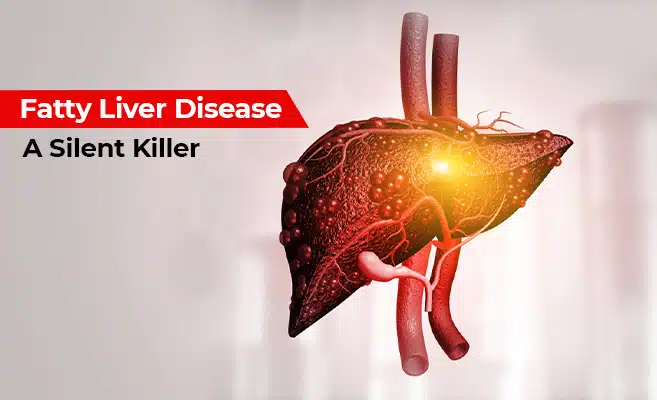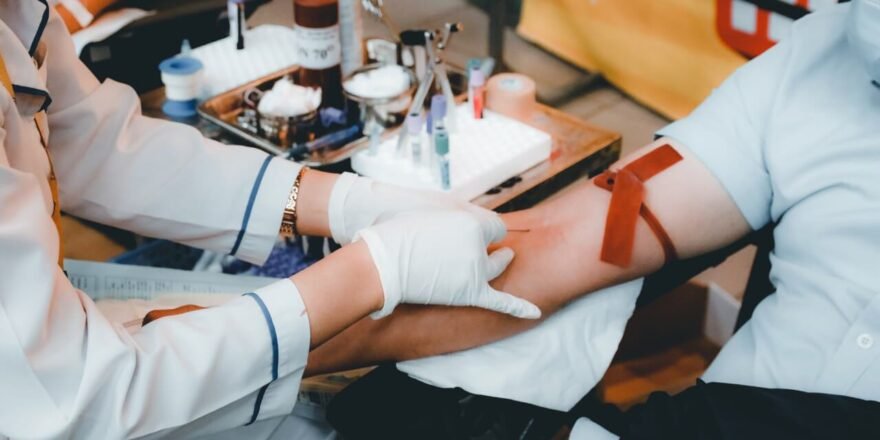The condition known as fatty liver disease, or hepatic steatosis, is typified by the build-up of extra fat within the cells of the liver. While a small amount of fat in the liver is normal, excessive fat can lead to inflammation, damage, and serious health issues. Understanding the causes and preventive measures is crucial for maintaining liver health and overall well-being.
Causes of Fatty Liver Disease
Obesity: One of the most common causes of fatty liver disease is obesity. Excess body weight, particularly around the abdomen, increases the risk of fat buildup in the liver.
Poor Diet: Diets high in saturated fats, trans fats, refined sugars, and processed foods contribute to fatty liver disease. Consuming excessive amounts of sugar and simple carbohydrates can lead to fat accumulation in the liver.
Insulin Resistance and Type 2 Diabetes: Insulin resistance, a condition where the body’s cells do not respond properly to insulin, can lead to the development of fatty liver disease. Type 2 diabetes is frequently linked to this illness.
Alcohol Consumption: One of the main causes of alcoholic fatty liver disease is excessive alcohol consumption. Even moderate alcohol consumption can contribute to fat buildup in the liver, especially when combined with other risk factors.
Genetics: Genetic predisposition plays a role in the development of fatty liver disease. If there is a family history of liver disease, individuals may be at higher risk.
Rapid Weight Loss: Sudden and drastic weight loss can cause fatty liver disease as the liver metabolizes fat more quickly than it can handle, leading to fat accumulation.
Prevention of Fatty Liver Disease
Healthy Diet: Adopting a balanced diet rich in fruits, vegetables, whole grains, and lean proteins is essential. Reducing the intake of saturated fats, trans fats, refined sugars, and processed foods can help prevent fat buildup in the liver. Drinking plenty of water supports overall liver function and helps in the detoxification process.
Daily Exercise: Exercise on a regular basis enhances insulin sensitivity and aids in maintaining a healthy weight. Try to get in at least 150 minutes a week of moderate-to-intense activity. Achieving and maintaining a healthy weight is crucial for preventing fatty liver disease. Gradual weight loss through a combination of diet and exercise is recommended.
Limit Alcohol Intake: Reducing or eliminating alcohol consumption can significantly lower the risk of fatty liver disease. If you decide to drink, make sure it’s moderate.
Monitor Blood Sugar Levels: Managing blood sugar levels through diet, exercise, and medication (if necessary) can help prevent insulin resistance and type 2 diabetes, reducing the risk of fatty liver disease.
Avoid Risky Medications: Certain medications can contribute to liver damage. Always consult your healthcare provider before starting any new medication and avoid self-medicating.
Liver Transplant: A liver transplant may be considered for patients with severe fatty liver disease that has progressed to liver failure. A P Medical Center in Salem is recognized as one of the best hospitals for liver related treatments, offering state-of-the-art facilities and expert medical care. In this surgery, a healthy liver from a donor is used to replace the damaged liver.
Fatty liver disease is a growing health concern, but it is largely preventable and treatable through lifestyle modifications and medical treatments. By understanding the causes and implementing preventive measures such as a healthy diet, regular exercise, weight management, and limiting alcohol intake, individuals can significantly reduce their risk of developing fatty liver disease. Treatment options are available and effective, especially when the condition is detected early. Regular health check-ups and monitoring are vital for early detection and effective management of the condition. For general health and longevity, liver health must come first.




